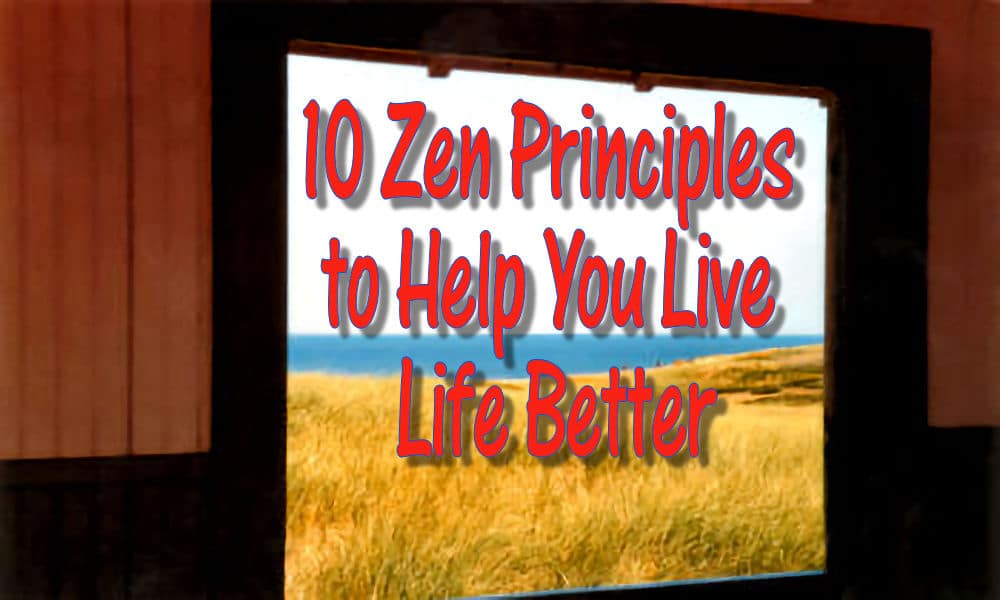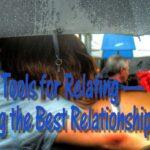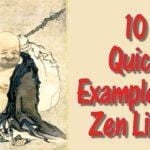- Ideas for Zen Living: 12 Presence Presents
- 5 Communication Tips
- 10 Quick Examples of Zen Living
- Better relating — 6 Ideas
- Fearless Living — 7 Tips
- 5 ways to pay attention
- 10 Zen Principles to Help You Live Life Better
- 7 Ways to Live in This Endless Moment
- 5 Key Concepts for Zen Living
- 9 Tools for Relating
- 3 Riffs on Relating
- Vulnerability — 5 things
- 5 Life Lessons You Need to Get
- 9 Ways to Screw up a Relationship
- 10 Things Your Mommy Forgot to Tell You
Zen principles are little bits of simple guidance, designed to help you grasp this life direction. This article is greatly expanded upon in my book, Half Asleep in the Buddha Hall.
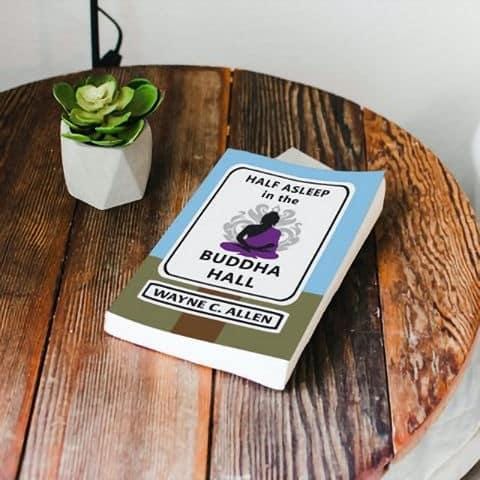
Looking for more on this topic?
Check out my book,
Half Asleep in the Buddha Hall.
My “Eastern” book takes you by the hand and helps you to find peace of mind.
Half Asleep in the Buddha Hall is a Zen-based guide to living life fully and deeply.
(Here’s a direct Amazon link)
Purchase digital versions (Apple, Nook, Kobo, etc.) from this page
10 Zen Principles According to Zen Master Yogi Berra
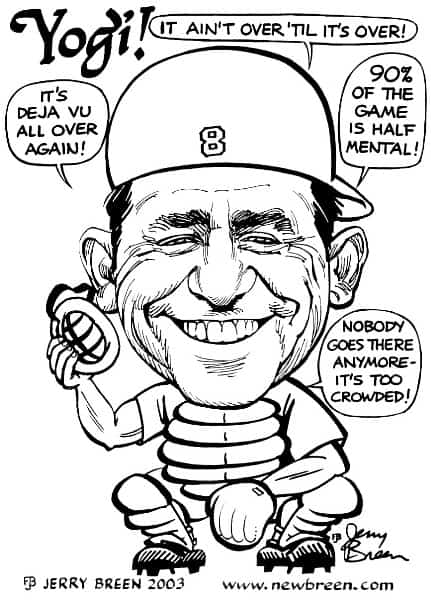
The following Zen principles are from one of the most Zen guys
ever–Yogi Berra
10. “It ain’t over till it’s over.”
Most do not get this, and give up way too early. You’re not done until you die-or give up.
This quote is from 1973. Berra was managing, and his New York Mets trailed the Chicago Cubs by 9½ games in the National League East. Berra realized that no matter how hopeless a situation seemed, the season did not end until the last out. The Mets rallied to win the division title on the next-to-last day of the season.
To be down seven runs with one out to go is no more significant than any other point in the game. Your duty is to act-in this case, to ‘play ball devotedly.’ The outcome is whatever it is. However, if you don’t swing the bat with the intention of winning, you doom yourself. So, you set an intention (in this case, to win) and you work toward it with full effort, until the very last.
Most give up a moment or so too soon-typically when the going gets tough, and the fog rolls in. Here’s a story:…
[The rest of the story is in my book, Half Asleep in the Buddha Hall]
Often, decisions to “stop,” to “pull up,” are made in a similar fog, just a few feet from success. Far better to continue walking, and to make course corrections as we go.
Zen considers only the present moment. What I choose to do in this moment is not pre-determined by anything. Blaming your mommy or your past relationships, your genetics or your lack of understanding is just an excuse for not swinging for the fence, right now.
Remember: the journey of a thousand miles begins with the first step, but only if you take it. And, of course, each step is a first step.
9. “You can observe a lot just by watching.”
This might seem nonsensical until you see the underlying rhythm:
You can observe a lot by “just watching,”
as opposed to judging.

Observing is something we have talked about at length. To observe is to detach from interpretation. When you ‘just observe—just watch,’ everything means nothing, and nothing is permanent. On the other hand, if I see something and immediately go into my head, and start making distinctions, all I will do is find evidence for what I already believe.
Shifting to simply observing requires that I uncritically watch the situation as it unfolds before me. As my mind struggles to create a drama to judge, I observe my mind playing games, and then have a breath and let go of that game. In this clarity, I can choose a way to respond that is appropriate to the current moment and situation, without getting tied up in the games and dramas my mind loves.
[The rest of the story is in my book about Zen principles, Half Asleep in the Buddha Hall]
The centered life (“observing by just watching…”) is about acting in a way that is consistent with your most deeply held understandings. You cannot be peaceful by yelling… you cannot solve complications by creating chaos. The job of life is to become consistent, persistent, and resistant.
Remember: in every area where you think you are stuck, you are stuck because you are holding on to something that does not work. Let go, observe, move on.
8. “Think? How the hell are you gonna think and hit at the same time?”
This is the follow-on to the last point. From a practical perspective, Berra was spot on. When a pitcher throws a baseball at 95 miles per hour, it takes the ball only four-tenths of a second to reach home plate. That gives the batter about two-tenths of a second to decide to swing or not to swing.
Thus, when hitting a baseball, thinking gets in the way of acting.
This is true with learning most things. As we learn something, we move from complex and slow to easy and fast. (Think back, for example, to how hard riding a bicycle was, until it wasn’t.)
I’m not saying that hitting a 95 mile an hour fastball is easy. I am saying that if you are going to learn this skill, you had better give up thinking you can reason your way through it. All you can do is swing a bat, again and again. Once your body ‘gets’ the idea, you can then practice elegant hitting, until it becomes instinctual.
In Zen, we speak of discipline. The key discipline is ‘non-following,’ or non-attachment. You let each non-helpful thought go by not clinging to it. Now, of course, as with Beth, such thoughts will arise until you die.
Following such thoughts leads to paralysis by analysis. This paralysis seems inevitable, until I notice that repeating dysfunctional thought patterns causes the paralysis. I am ‘lost in thought,’ and the cure is to stop myself—not by more thinking, but by acting. Less thought, more action.
Remember: you cause yourself problems by over-thinking and under-doing. Pick a way to be, and then just be it. Swing for the fences, letting the critical thoughts fade into background noise.
7. “If you don’t know where you are going, you will wind up somewhere else.”
I used to have a poster on my counselling wall that read,
“If you aim at nothing, you will hit it.”
Berra presents the same idea.

Many are the clients who whine about their lives, their relationships, etc. I say, “Well, what do you want?” They reply, “Here’s what I don’t want…” Phooey. Stating what you do not want, or where you are not going, or who you are not is futile and lazy. Oddly, most see this as progress.
“I never want to be in a relationship like this again!” OK, so the next one is worse. You got what you asked for. This happens all the time.
If you think about it, defining what you do not want is impossible, as you cannot cover everything.
[The rest of the story is in my book, Half Asleep in the Buddha Hall]
There is nothing more important than identifying the territory (what I want) and procuring a map (how to behave so as to get there.) It is like using a foreign subway system. If you have a destination, all you have to figure out is the map, how to get to the right platform, and which car to enter. If you have no destination, you are going to end up ‘wherever.’
Sure, life is hard. There are the bad breaks we create, and bad breaks that just happen. So what? The only way to really live is to focus on what you want, as you drop your attachment to what you don’t want. Then, start. Sounds easy, but it takes discipline. Is it worth it? “Yes!”
Remember: your job is to state, clearly, who you are, what you are about, and where you are. From “here,” you choose your next action. Next, see to it that you have integrity. Integrity means that your actions match what your mouth is saying. Wandering around all confused and lost, while griping about how hard you are working at defining what and where you aren’t, is the height of dumb.
6. “You better cut the pizza in four pieces because I’m not hungry enough to eat six.”
I think we laugh at this one because we recognize we have done this a time or two. We know we shouldn’t eat two pieces of pie, so we take a larger first slice. And then tell ourselves, “At least I didn’t eat two.”
What we are talking about here is the tendency to justify doing something that violates our principles, then resorting to the “It’s not as bad as it appears” defense.
- “I’m not going to criticize my partner, as it doesn’t work. Except this time, because what he did was really bad.”
- “I’m done cruising bars and picking up women. I met her at a library, so that’s different.”
- “Sure, he’s abused me in the past, but this time he really means it when he says he’s changed.”
- “I’m going to live my life and not let my partner tell me what to do, just as soon as he agrees.”
Your life changes when you decide to be disciplined about what you allow yourself to enact. This process starts when you watch your behavioural outcomes, and notice your patterns.
[The rest of the story is in my book, Half Asleep in the Buddha Hall]
For this young woman, change will come when she drops the excuses for having sex in an attempt to buy love. She must develop and then live by her principles, with no excuses. She must take total responsibility for her outcomes. Otherwise, she is doomed to repeat the same horizontal behaviours, get the same results, and never change her level of self-esteem.
Remember: our minds are clever little things, and endlessly justify why we cannot do what we say we are going to do. The last thing our egos want is integrity-based living — it’s entirely too self-responsible.
It is very Zen to do what we say we will do. Nothing less, nothing more. Chop wood, carry water. Don’t be tricky, don’t dissemble, and don’t lie. Say it. Do it. Four pieces, six pieces — it’s still the whole pie.
5. “It was impossible to get a conversation going; everybody was talking too much.”
A conversation requires undivided attention, depth, and a willingness to be open and vulnerable. Most people talk to hear their own voices, and to fill fearful silence with sound. Berra is right—when people talk too much, it is impossible to converse with them.

Talking (small talk, emphasis on small) is the socially acceptable way to fill the silence void. We’re conditioned to spew small talk, which has nothing to do with actual conversation.
Conversation requires the willingness to listen carefully, while suspending judgement. If we do not pay attention, we are nothing more than the sum of our pre-judgements—our prejudices.
Actual conversation is a verbal dance, as both parties make a serious attempt to communicate, “This is who and where I am right now.” Conversation is sharing who I am through self-reflection, and listening to what the other person has learned of themselves through their self-reflection.
Many people confuse self-reflection with an endless whine about how tough their life is.
[The rest of the story is in my book, Half Asleep in the Buddha Hall]
Even when you listen carefully, your ego-based prejudices have a way of confusing you. Listen again, with a clear heart and mind, and you might hear something different.
Remember: slow down. Speak your truth, from as deep inside as you can reach. Reveal more and more of you, including the messy, evil, nasty parts. Then, shut up, watch and observe. As you find yourself planning a response to what another is saying (in other words, you have stopped listening,) shut up and open your ears. A conversation is never a debate, and there is no winner.
4. “Slump? I ain’t in no slump. I just ain’t hitting.”
We are nothing more than our self-definition. Or, as the Buddha said,
“All that you are is what you have thought.”
We endlessly self-describe, and because we think it, we tend to stop there, believing we are as we think ourselves to be. Therefore, to change is, first, to change your self-description.
[The rest of the story in my book, Half Asleep in the Buddha Hall]
Our lives are the proving ground for our beliefs. Where I am in life–right now–is a perfect mirror of who I am, what I believe, and especially what I do. I can look at my surroundings and at my mental, emotional, and physical state and tell precisely what I believe, and who I am.
We need to explore the rules we operate under. If we don’t look at what we believe, to see if what we believe makes sense for us now, we are doomed to live out some old version of our life plan, and be totally miserable in the process.
Remember: “a slump” is a judgement, and makes the thing perceived seem to be something outside of your control. If you put the way you are presently into a box labeled “Out of my control,” you are well and truly screwed. Instead, empty that box. A simple statement of, “Here is where I am right now” allows for the next clause, “…and here is what I will do differently.”
Berra’s “I just ain’t hitting” is actually his way of saying, “I am not hitting right now, and will hit next time I’m up to bat.”
You think it, you are it.
3. “If you come to a fork in the road, take it.”

This is opposed to just standing there, staring at the fork, refusing to choose, to move, to decide. Or, you’re going down a road that’s not getting you where you want to go. You come to a place for changing directions, yet continue down the old path. You say, “I may not be getting what I want, but at least this path is familiar.”
Others are stuck in deep inertia, refusing to shift anything, including the painful stuff, until they can be assured that they’ll get to the ‘right’ destination.
Just standing at a crossroads, endlessly debating the ‘right path,’ is a mook’s game. [A Mook’s Game is a game for suckers—like 3 Card Monte]
Unfortunately, our world is filled with people doing just that—doing nothing, while bragging about how much effort they are putting into their internal debate.
As they stand there. Doing nothing.
Not to decide is to decide. What happens in our life is about what we notice or give credence to. Something different happens in our lives when we choose to shift our understanding, and then our actions. This way, or that way—no difference, no waiting to identify the ‘right path’—just take the fork in the road.
[The rest of the story is in my book, Half Asleep in the Buddha Hall]
Remember: life presents endless forks in the road. In general, any choice we make can be changed at any time. (Life and death choices occur rarely.) Turning a garden variety choice into life and death (“But… but… what if I make the wrong choice???”) is actually a way to stay stuck. Pick one, and start walking. You do not get the time you waste back at the end of your life.
2. “I never blame myself when I’m not hitting. I just blame the bat, and if it keeps up, I change bats. After all, if I know it isn’t my fault that I’m not hitting, how can I get mad at myself?”
Regret, blaming yourself, getting mad at yourself… a trio of stupidity. What Berra is describing in this quote is so Zen—“This is not working, so let me try this.” His “blaming the bat” strategy is perfect. Blaming the bat is “no-blame,” or non-attachment-to-blame. Berra’s bat was a totem —a symbol—and he used it to re-focus his attention.
Here’s an illustration: say your kid misbehaves, and you decide to yell at her. The kid flinches, cries, and runs and hides. And later repeats the mis-behaviour.
The wise soul “does not get mad at herself.” She looks at the bat she chose—her choice to yell. She “blames the bat,” and picks up another bat—she apologises to her daughter and talks the issue through. Remember: blaming the bat is no-blame!
Non-attachment starts with acceptance that everything is as it is, until it isn’t. When things go ‘ass-over-teakettle,’ it’s essential not to get into blaming or recriminations, as all this does is freeze you in place, without ‘things’ changing.
Being in crisis is the perfect time for a little mantra:
“This is not about me, this is not personal.”
[The rest of the story is in my book, Half Asleep in the Buddha Hall]
In reality, nothing is happening to us.
All one can do, as Berra states, is drop the judgements while doing something new. Blaming yourself accomplishes nothing. Shifting focus helps us to remember that life is endlessly moving on, and we are stepping into it, moment by moment. Nothing ever remains the same.
Remember: when seemingly lost, open your eyes and see the beauty around you, then ski in a logical direction, gracefully and smoothly. Breathe. Watch life continue to unfold. Act, have faith, and detach. You will get home, one way or another. Panic and giving up, although popular, gets you nowhere.
If what you are doing is not working, change bats — no blame, no recrimination. Move. Now.
1. If I didn’t wake up, I’d still be sleeping.
Here’s my favourite image. I think it’s by John Daido Loori.

If you are not awake, you are asleep. Period.
Being asleep is the norm in our world. People are caught in dreamscape living, making what little they observe fit their preconceived notions, categorizing people and experiences according to their prejudices.
Being awake is simply being. It starts with a conscious suspension of judgement, through the discipline of directing one’s attention. Judgements fade and what is left is awakened living.
Here is a description of being asleep: as you react out of habit, fear, or confusion, you are drifting off into dreamland.
As I wrote in This Endless Moment:
One point of [the movie] Waking Life is captured in the title: one can choose to wake up to life. Or one can live forever trapped in a dreamscape, living a “life” of “woulda, coulda, shoulda.” In a hundred years, no one will remember your name. No one, ever, will know you. Except, possibly, you. If you choose.
And the only you that you can know is the you that you are in this moment. You are not your past—all you have is a present explanation of the story you tell yourself about what you believe happened to you.
In other words, you experience your past now and only now.
You are nothing more than this moment, this breath. In this moment, you can be fully alive and fully present. And in that choice, you are whole, complete, and without blemish.
Authentic, enlightened humanity exists only in the Eternal Now.
Wake up!
[The rest of the story is in my book, Half Asleep in the Buddha Hall]
Life is about ‘waking up’—about getting on with what needs doing. There are a million and one reasons for not starting, for turning back, for staying put, for being ‘safe.’ At the end of the day, however, nothing will have changed. Far better to risk, to dare, to climb.
Far, far better to ‘wake up’!
If you liked this article, here’s another Zen principles article, this one on Zen Living!

